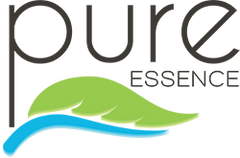When you think of the cold and flu season, you probably think about making sure you get enough vitamin C daily. But, did you know that vitamin C is more than an immune factor? It’s vital for every aspect of health!
Vitamin C isn’t something your body can make or store. That means you need a new supply every day. Thankfully, it’s easy to get at least your RDA (Recommended Dietary Allowance) from foods – IF you’re careful what you eat. The Daily Values are established at:
- Children need 30-40 mg per day
- Adult women need 75 mg
- Pregnant women need 80-85 mg
- Breastfeeding women need 115-120 mg
- Adult men need 90 mg.
While RDA’s for vitamin C are modest, many nutritionists believe higher levels are needed for optimal health. So, while serious vitamin C deficiency is uncommon, you might want to think about adding more vitamin C rich foods to your diet or a supplement to your daily regimen, especially if you drink alcohol or use tobacco or marijuana products. Many prescription drugs also deplete vitamin C in your body.
- Steroids, like prednisone, dexamethasone, fluticasone, hydrocortisone
- Diuretics like furosemide, bumetanide
- NSAIDS like aspirin
- Proton pump inhibitors like pantoprazole and omeprazole
- Oral contraceptives (birth control pills)
Common Symptoms of Low Vitamin C Levels
Signs of vitamin C deficiency don’t show up overnight. It usually takes at least a month of consistently low vitamin C consumption (less than 10 mg/day) for deficiency symptoms to develop. However, that doesn’t mean your health is not suffering. If you don’t have enough vitamin C, you can’t be your best you.
If you notice any of the following, it could be your body telling you that you need more vitamin C:
-
Rough, bumpy skin. Collagen is a protein necessary for skin cell reproduction and vitamin C is a major player in collagen production. When we don’t get enough vitamin C, the lack of collagen causes a buildup of keratin. This results in “keratosis pilaris”, in which bumpy “chicken skin” forms on the back of the upper arms, thighs, or buttocks.
-
Bright red hair follicles. Lack of vitamin C can cause the tiny blood vessels that deliver blood to rupture, causing the hair follicles to take on a bright red color. This usually indicates severe deficiency. [1]
-
Dry, damaged skin. With enough vitamin C, skin looks plump, moist and healthy. A lack of it can lead to dry, damaged skin.
-
Easy bruising. The low collagen caused by vitamin C deficiency weakens blood vessels, which can rupture to form bruises. This is an early sign of a vitamin C deficiency. [2]
-
Slow wound healing. Vitamin C not only prevents easy bruising, but helps wounds heal. Low vitamin C levels slow healing.
-
Painful, swollen joints. Joints contain collagen-reliant tissue that can be depleted by low levels of vitamin C.
-
Bleeding gums and tooth loss. Vitamin C helps prevent gum tissue from becoming inflamed. Without enough, your gums may bleed easily and teeth may be at risk.
-
Fatigue and poor mood. Lack of energy and mood disorders can be early signs of vitamin C deficiency.
-
Spoon-shaped fingernails with red spots or lines. Brittle, concave, spoon-shaped nails (lower in the center than the top or bottom) can mean a deficiency of iron, vitamin C, or both. The addition of reddish spots or lines usually point to vitamin C as the problem.
Best Sources of Vitamin C
If you see signs of a vitamin C deficiency, consult your doctor. Most of the time, these symptoms will go away within a few weeks to a couple months by increasing vitamin C intake. Depending on diet, this might require a vitamin C supplement. Whether you use a supplement of not, eat lots of fruits and veggies (raw if you can digest them). Some of the best choices are:
- Camu camu berries: These South American berries pack over 2000 mg of vitamin C in each serving.
- Guavas: Each serving provides 228 mg of vitamin C.
- Kale: 120 mg per serving
- Kiwi: 93 mg per serving
- Brussel sprouts: 85 mg per serving
- Oranges: 53 mg per serving

Vitamin C supplements are also good choices. Because vitamin C is so important, there are hundreds of supplements out there. While most contain only ascorbic acid (a part of the whole vitamin C complex found in foods) you can find a few that offer real, whole food vitamin C. We think these are far healthier and won’t cause the digestive distress that sometimes occurs with factory made ascorbic acid.
We believe the best choice you’ll find is our own, Whole-C™. With the vitamin C coming from camu camu berries sustainably wild-crafted from the Amazonian regions of Brazil, you get the complete vitamin C complex found only in whole, unprocessed foods. With it, you also get valuable phytonutrients that are native to camu camu, along with a unique combination of buckwheat sprouts, lemon peel, elderberries, cranberries, blueberries, raspberries, and pomegranates. We think you’ll agree that Whole-C™ is the most holistic and effective vitamin C product you’ll find.*
Sources
[1] Lessing, Juan Nicolas et al. “Perifollicular haemorrhage with corkscrew hair due to scurvy.” Postgraduate medical journal vol. 91,1082 (2015): 719-20. doi:10.1136/postgradmedj-2015-133661
[2] Harrison, Laura B et al. “Investigating easy bruising in an adult.” BMJ (Clinical research ed.) vol. 356 j251. 9 Feb. 2017, doi:10.1136/bmj.j251

